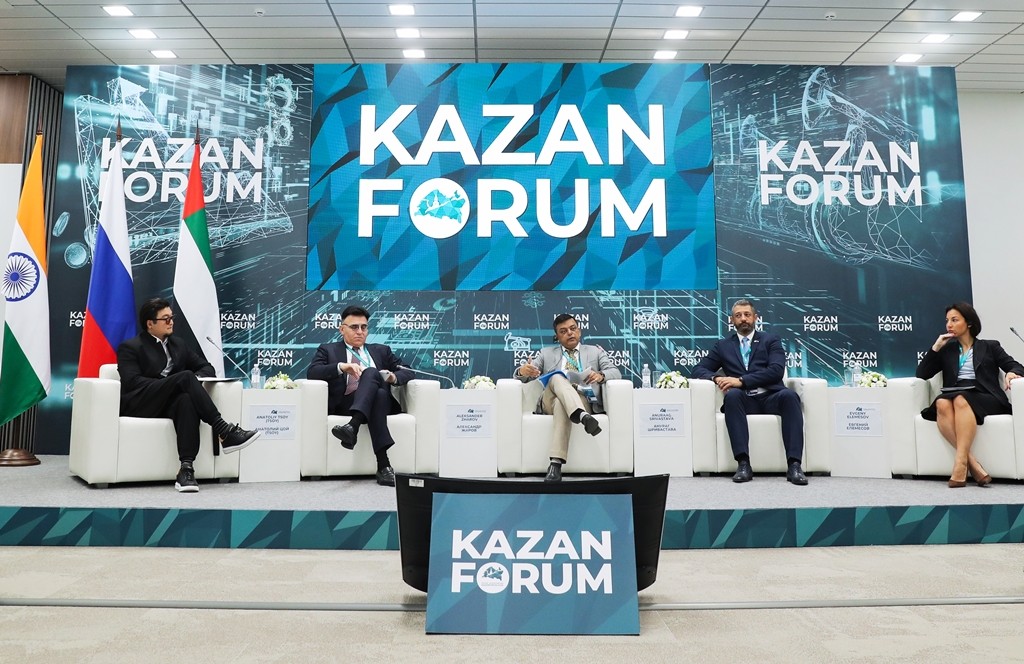Russia’s Dialogue with the Islamic World
The 16th edition of the Kazan Forum, a platform for cooperation between Moscow and the countries of the Organisation of Islamic Cooperation (OIC), was held in the capital of the Russian republic of Tatarstan. Topics discussed included digital financial systems to promote the use of national currencies in Islamic banking, and the use of technology to spread Islamic culture.
Moscow (AsiaNews) – From 13 to 18 May, Kazan, the capital of the Russian republic of Tatarstan, hosted the 16th International Economic Forum Russia – Islamic World: Kazan Forum. The event is described as “a well-established platform for economic cooperation between Russia and the countries of the Islamic world”, bringing together representatives from more than 100 countries.
This year’s forum focused on issues of digitalisation, Islamic banking, bilateral trade relations, national currencies, technology, and cultural exchange.
Experts note that the role of Islamic states continues to grow within the global economy, and the Kazan Forum aims to serve as “a strategic hub for dialogue and the formation of a new global economic architecture”.
The 57 countries of the Organisation of Islamic Cooperation (OIC), which represent over a billion people, are gaining increasing influence on the world economy—particularly through the active development of logistics and transport routes along the North-South corridor.
This route connects Russia with Asia and the Middle East, and is being modernised to speed up trade and open new markets. Numerous projects are also underway in industry and energy, and speakers at the forum highlighted “the direct dialogue between Russia and the Islamic world”.
According to Russian Deputy Prime Minister Marat Khusnullin, a Tatar by origin, the Kazan Forum “brings together ideas and initiatives based on the principles of a multipolar world and mutual trust”.
This year, special attention was given to digital financial systems as alternative mechanisms for international payments, including the use of national currencies. Taliya Minullina, director of Tatarstan’s Investment Development Agency, chaired a dedicated conference on Islamic banking, which is founded on Sharia principles. The session focused on harmonising ḥalāl production standards with joint investment projects and non-debt-based payment systems.
Considerable attention was also paid to technology and culture, with sections on innovation, tech production, and artificial intelligence. A major exhibition entitled The Light of Islam Through the Centuries featured rare Qur’an manuscripts and Islamic art objects, along with sessions on Islamic fashion and cultural tourism. Discussions included the fashion industry in Southeast Asia and post-Soviet Asian countries, best practices in the development of religious tourism, and showcases on Islamic calligraphy and cinema.
Tatarstan authorities organised excursions to the Kazan Kremlin, the grand Kul Sharif Mosque, and other museums and historical sites in the region, which is the successor of the Golden Horde—Tatars who converted to Islam in the 14th century.
The region also encompasses the heritage of the Volga Bulgars, who celebrated 1,100 years of Islam in 2022. Ministers of culture from OIC countries met with delegates from 17 other states and many international organisations, highlighting the broad diversity of cultural relations.
As Tatarstan’s Culture Minister Irada Ayupova remarked, “The key theme was the preservation of identity and diversity within the conditions of the new multipolar world”, calling for respect for each people’s traditions alongside openness to new forms of cooperation.
Russian President Vladimir Putin also sent a message to the forum, emphasising “the importance of shaping a global economic architecture” that fosters shared development and is mutually supported by countries of the Global South. He distanced the initiative from “the hegemonic ambitions of the northern Western powers”.
Tatarstan is envisioned as “the driving force behind a major alliance between various Russian regions and Islamic states at the international level”, tying into the agenda of the BRICS nations, which also held a summit in Kazan in 2024.







.png)










